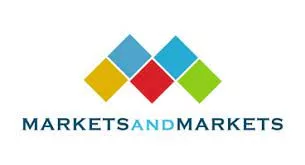USB Helps Soy-Based Products Come to Market
ST. LOUIS, MO - Due in part to the United Soybean Board (USB) and the U.S. soybean research and promotion program known as The Soybean Checkoff, 32 new soy-based products hit the market in 2010. USB provides funding to industrial partners to research, develop and commercialize products containing soy.
USB focuses its research on several target areas, including adhesives, coatings, printing inks, lubricants, plastics, fibers, solvents and emerging industrial products. While the products represent a diverse range of categories, all represent sustainable, biobased alternatives to petrochemicals.
“So many soy-based products now replace petrochemicals,” said Bob Haselwood, Chairman of the USB New Uses program and a soybean farmer from Berryton, KS. “Soybeans represent an abundant, renewable resource. We grow soybeans every year, so they can fulfill the needs for a renewable feedstock.”
USB works to advance sustainability, in part by developing and promoting soy-based products. Many of the products use soy as a replacement for petrochemicals, giving them a renewable, environmentally friendly source material.
Industrial partners of USB continue to produce an assortment of soy-based products without impacting the world’s food supply. The food industry uses more than 70 percent of the U.S. supply of soybean oil. Oil makes up just 18 percent of a soybean while the remainder consists of protein-rich meal, which goes to feed humans and animals across the globe. A USB study found that industrial demand for soybean oil for such things as biodiesel and soy-based products increases the supply of soybean meal, which can be used to produce more food.
Each soy-based product on the list represents the culmination of a three-to-five-year process that began with researchers presenting their ideas for new soy technology to USB farmer-directors.
“We look to invest checkoff resources with industry partners interested in using soy who are willing to invest some of their own resources,” said Haselwood. “If we can provide assistance in funding research and development, we provide an incentive to help find new ways to use soy and increase demand for U.S. soybeans.”
USB continues to look for industry partners with ideas for new products and technologies that will grow demand for U.S. soy.
"As industries look for more renewable resources, and learn more about new ways to use soy, we will see larger percentages of soy used in new products and more new products using renewable soy technologies,” said Haselwood.
New soy-based products introduced in 2010 as a result of The Soybean Checkoff support include the expansion of new soy coatings for smooth enamel finishes for trim and doors and interior waterborne alkyd semi-gloss systems from Sherwin-Williams. A soy-based powder coating resin for standard- and low-temperature cure on metal from Hexion Europe was also a result of program support.
USB focuses its research on several target areas, including adhesives, coatings, printing inks, lubricants, plastics, fibers, solvents and emerging industrial products. While the products represent a diverse range of categories, all represent sustainable, biobased alternatives to petrochemicals.
“So many soy-based products now replace petrochemicals,” said Bob Haselwood, Chairman of the USB New Uses program and a soybean farmer from Berryton, KS. “Soybeans represent an abundant, renewable resource. We grow soybeans every year, so they can fulfill the needs for a renewable feedstock.”
USB works to advance sustainability, in part by developing and promoting soy-based products. Many of the products use soy as a replacement for petrochemicals, giving them a renewable, environmentally friendly source material.
Industrial partners of USB continue to produce an assortment of soy-based products without impacting the world’s food supply. The food industry uses more than 70 percent of the U.S. supply of soybean oil. Oil makes up just 18 percent of a soybean while the remainder consists of protein-rich meal, which goes to feed humans and animals across the globe. A USB study found that industrial demand for soybean oil for such things as biodiesel and soy-based products increases the supply of soybean meal, which can be used to produce more food.
Each soy-based product on the list represents the culmination of a three-to-five-year process that began with researchers presenting their ideas for new soy technology to USB farmer-directors.
“We look to invest checkoff resources with industry partners interested in using soy who are willing to invest some of their own resources,” said Haselwood. “If we can provide assistance in funding research and development, we provide an incentive to help find new ways to use soy and increase demand for U.S. soybeans.”
USB continues to look for industry partners with ideas for new products and technologies that will grow demand for U.S. soy.
"As industries look for more renewable resources, and learn more about new ways to use soy, we will see larger percentages of soy used in new products and more new products using renewable soy technologies,” said Haselwood.
New soy-based products introduced in 2010 as a result of The Soybean Checkoff support include the expansion of new soy coatings for smooth enamel finishes for trim and doors and interior waterborne alkyd semi-gloss systems from Sherwin-Williams. A soy-based powder coating resin for standard- and low-temperature cure on metal from Hexion Europe was also a result of program support.
Looking for a reprint of this article?
From high-res PDFs to custom plaques, order your copy today!





